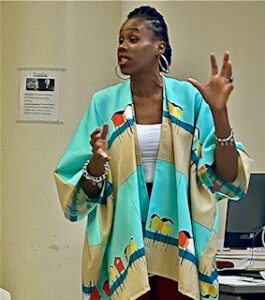As we step into January, a fresh year filled with new beginnings, one of the things the Lord has been speaking to my heart about is the power of your testimony.
The Bible tells us plainly that we overcome by the blood of the Lamb and by the word of our testimony. That means your victory is not just in what Jesus has already done, which is finished and complete, but also in what you choose to say about what He has done, is doing, and is about to do.
You see, there are blessings God has already worked out on your behalf. The cross settled it. The price has been paid. But for you to secure what heaven has already released, you must first believe in the finished work of Jesus Christ, and then you must testify of the goodness of God.
The Lord began to show me that there are two types of testimonies, and both are powerful.
The Testimony Before It Happens
The first type of testimony is the one that comes before you ever see the manifestation. This kind of testimony takes boldness. It takes courage. It takes faith.
This is when you speak those things as though they already are, not as though they are not.
This is when you open your mouth and declare, “God is faithful,” even when the evidence hasn’t caught up yet. This is when you say, “It is done,” while you’re still standing in the waiting. This kind of testimony doesn’t rely on what your eyes can see; it relies on who God is.
January is the perfect time for this kind of testimony. It’s the month where faith is stretched, where hope is spoken, where vision is declared. And God honors bold faith. He responds when His children agree with His Word instead of their circumstances.
The Testimony After It Happens
The second type of testimony comes after the breakthrough. This is when you shout unto God with a voice of triumph. This is when praise erupts from a heart that has seen the goodness of the Lord in the land of the living.
This is when you thank Him openly. You praise Him boldly. You tell the story of what He’s done, because your praise doesn’t just glorify God, it strengthens someone else’s faith.
The Bible says that God daily loads us with benefits. Every single day, He’s pouring out grace, mercy, provision, protection, and favor. Sometimes we’re so busy waiting for the “big” miracle that we miss the daily goodness of God that deserves testimony right now.
What’s in You Will Come Out of You
One thing I’m grateful for is my relationship with God, because when you truly walk with Him, something gets deposited in you. And when something is in you, it will come out of you.
Your testimony flows from a relationship. It flows from intimacy. It flows from knowing God for yourself.
And here’s the beautiful part: your testimony doesn’t just change your life, it changes atmospheres. It creates unity. It invites God’s presence into rooms, conversations, and communities.
The Word says, how good and how pleasant it is when we dwell together in unity. When we come together with gratitude, faith, and expectation, God shows up. And when God shows up, miracles happen.
January, Open Your Mouth
As you move through this month, I encourage you:
-
Testify before you see it.
-
Praise God after you receive it.
-
Speak life at your table.
-
Fellowship in faith.
-
Declare the goodness of the Lord.
God is in the midst of us, and He is ready to do something miraculous. But never underestimate the role your testimony plays in unlocking what heaven has already prepared.
Open your mouth. Speak His goodness. And watch what God does.









